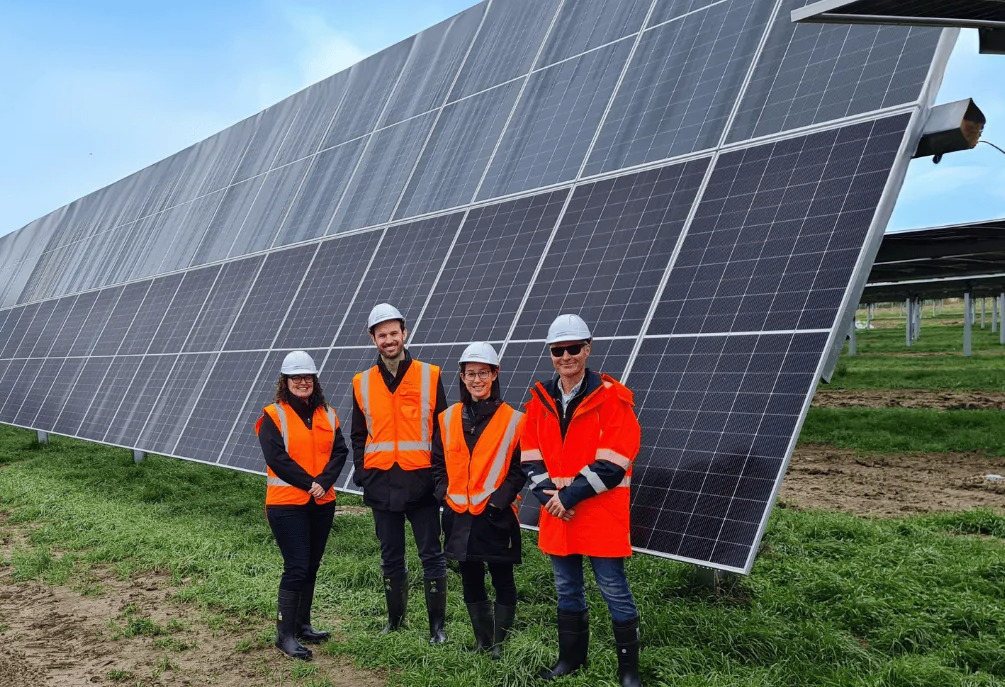
New Zealand solar PV developer Lodestone Energy has signed a solar agreement with poultry provider Inghams to match its electricity consumption via solar PV power plants.
Under this ‘landmark’ 20-year agreement, Lodestone Energy will generate certified renewable electricity from its solar PV power plants in the Bay of Plenty and Coromandel, on New Zealand’s northern island, to meet Inghams’ demand long into the future.
Unlock unlimited access for 12 whole months of distinctive global analysis
Photovoltaics International is now included.
- Regular insight and analysis of the industry’s biggest developments
- In-depth interviews with the industry’s leading figures
- Unlimited digital access to the PV Tech Power journal catalogue
- Unlimited digital access to the Photovoltaics International journal catalogue
- Access to more than 1,000 technical papers
- Discounts on Solar Media’s portfolio of events, in-person and virtual
The agreement has also been deemed flexible, and thus, Lodestone will adapt to ensure that 100% of Inghams’ electricity is met by solar PV. This protects Inghams from volatility in the electricity market, which prime minister Christopher Luxon recently dubbed an “energy crisis”.
The country has endured a dry year so far, significantly reducing the output of its hydropower plants. These plants account for a significant part of the country’s energy mix; according to trade body Energy Resources Aotearoa, hydropower accounts for 22% of the country’s energy supply, second only to oil. This means electricity prices shot up.
In response, the government has made a number of sweeping changes to the country’s energy industry, including reversing the previous government’s ban on new oil and gas projects.
Commenting on the deal with Lodestone Energy, Inghams chief executive New Zealand, Ed Alexander, said: “Lodestone’s 100% renewable energy proposition is innovative, saves us money and enables Ingham’s to meet its decarbonisation goals long into the future.
“We are obtaining the same outcome as if we built our own rooftop solar infrastructure but without the upfront capital cost and ongoing maintenance requirements.”
As a part of this agreement, Lodestone will supply Inghams with Renewable Energy Certificates (RECs), which provide certifiable proof that electricity has been generated using renewable energy sources like solar, wind, or hydro.
Gary Holden, managing director of Lodestone Energy, believes RECs are becoming recognised as the “most tangible way for electricity consumers to contribute to the green energy transition”.
“Inghams had a strong desire to move to a fully decarbonised electricity supply in a timely manner, and with this agreement, Lodestone’s rapid development programme will deliver premium certified credentials as their current contracts expire,” Holden added.
Lodestone hedges bets with agriPV
In July 2024, PV Tech reported that Lodestone Energy and Chinese solar manufacturing major Trina Solar had completed construction of the 32MW Rangitaiki Solar Farm in the Bay of Plenty, New Zealand.
The project features raised modules mounted on trackers, which allow sheep to graze beneath them. The modules in question are Trina Solar Vertex bifacial panels, mounted on TrinaTracker’s Vanguard 2P tracker systems.
The two companies have already worked together on agrivoltaics plants in New Zealand. Lodestone developed the Kohirā solar farm on the country’s North Island using Trina’s modules and trackers. The Auckland-based company is also currently developing what will be a 220MW agrivotlaics plant on the South Island.







